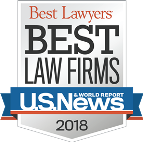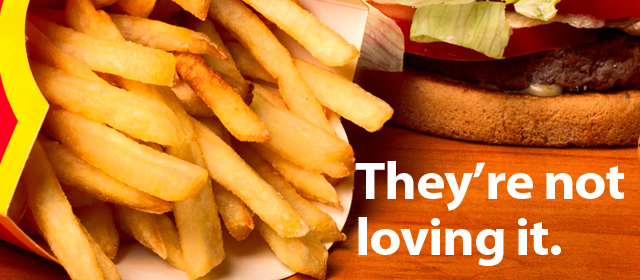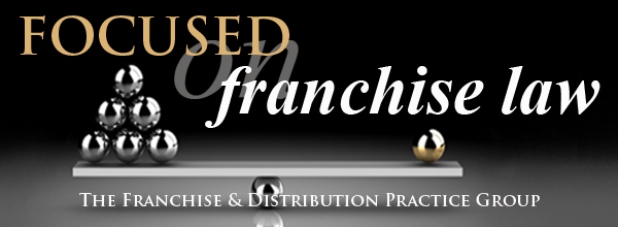Donut Holes in Franchise Relationship; and McDonald’s Shakes Damages re OT Policy

bkurtz@lewitthackman.com
dgurnick@lewitthackman.com
tgrinblat@lewitthackman.com
swolf@lewitthackman.com
msoroky@lewitthackman.com
kwallman@lewitthackman.com
tvernon@lewitthackman.com
JUNE 2017
Sam Wolf Selected
Congratulations to Samuel C. Wolf, one of two attorneys in Southern California designated a “Rising Star” in Franchise Law, by Super Lawyers Magazine. Sam was nominated by attorney peers and passed the independent research process patented by the magazine.
For details, click: 2017 Up-and-Coming Southern California Attorneys and Rising Stars
Joint Employer Liability – A Recent Wave of Reprieves
“While joint employer liability remains a looming, omnipresent facet of the franchise industry, franchisors have enjoyed a recent wave of reprieves. . .”
– by Matthew J. Soroky
Read: State Bar of California Business Law Section, Franchise Law Committee E-Bulletin
FRANCHISOR 101:
Donut Franchise Relationship Dissected by Court

 The parent of Dunkin’ Donuts was named along with Starbucks and about 80 other coffee sellers, distributors and retailers in a 2010 lawsuit alleging violations of California’s Proposition 65 and Safe Drinking Water and Toxic Enforcement Act. Dunkin Brands, Inc. (“DBI”) claimed it doesn’t itself buy, sell, roast, distribute or even possess coffee in California, and therefore should not have to put warnings on its coffee. But its argument failed on summary judgment, and DBI will go to trial with its co-defendants in August.
The parent of Dunkin’ Donuts was named along with Starbucks and about 80 other coffee sellers, distributors and retailers in a 2010 lawsuit alleging violations of California’s Proposition 65 and Safe Drinking Water and Toxic Enforcement Act. Dunkin Brands, Inc. (“DBI”) claimed it doesn’t itself buy, sell, roast, distribute or even possess coffee in California, and therefore should not have to put warnings on its coffee. But its argument failed on summary judgment, and DBI will go to trial with its co-defendants in August.
Businesses with 10 or more employees are required to place warnings on products containing chemicals that may cause cancer. Plaintiff, the non-profit watchdog group Council for Education and Research on Toxics (“CERT”), wanted defendants to add warnings to coffees that contain the carcinogen acrylamide.
DBI contended it had franchised all coffee operations to subsidiaries, while it just oversaw its corporate organization, and did not control or produce coffee. CERT pointed to the franchisee subsidiaries’ reliance on DBI to operate, arguing that DBI “directs its employees to do all of the acts for all of the subsidiary companies.” It claimed that DBI’s subsidiaries “intentionally have no employees” to avoid the minimum-employee threshold and that actions by employees at DBI’s direction expose Californians to acrylamide in Dunkin’ Donuts coffee.
The Court agreed with CERT’s argument, determined DBI’s “franchise” structure to be “smoke and mirrors,” found that selling coffee is not required for liability, ruled the law is to be construed broadly to protect public health, and found DBI’s control over its subsidiary franchisees necessarily gave DBI control over product warnings. DBI’s list of day-to-day aspects of its franchisees that it did not control – which did not include “product labeling” – only raised an inference that control over subsidiaries could be used to prevent them from selling coffee in violation of Prop 65.
Dunkin’ Donuts’ loss on summary judgment shows how courts and government may subordinate the protections provided by franchise relationships to perceived public health or other public interest concerns.
Council for Education and Research on Toxics v. Starbucks Corp., et al., BC435759 (L.A. Super. Ct., filed Apr. 13, 2010)
FRANCHISEE 101:
McDonald’s Shaking Damages for OT Policy

In Los Angeles Superior Court, McDonald’s claimed victory when 6,600 workers seeking $41 million in back pay and penalties came away with less than 2% of the amount sought in a claim that the fast-food giant cheated them out of overtime at almost 120 company restaurants. While the workers are sure to appeal the judge’s calculation method, the ruling provides franchisors and franchisees a roadmap for minimizing penalties under California’s Private Attorney General Act (“PAGA”). The Act deputizes workers as private attorneys general to pursue state labor code violations.
Earlier, McDonald’s Restaurants of California, Inc. (“McDonald’s”) was found liable for shorting overnight workers on overtime pay. McDonald’s timekeeping policy assigned all hours in a shift to the day the shift started. Overnight workers whose shift started on Day 1 and who then started another shift sometime on Day 2 often worked over eight hours in a 24-hour period but did not get overtime pay.
Several factors contributed to McDonald’s success at the damage phase of trial. The judge was persuaded by McDonald’s expert, while finding the workers’ expert unreliable for excluding certain time records from his analysis. McDonald’s also persuaded the court its violation was not willful; McDonald’s believed its policy was a fair and legal way to compute overtime and there had been no complaints prior to the suit. McDonald’s successfully avoided draconian fines and PAGA penalties, but it did not escape all liability. The workers were awarded $775,000.
Franchisor and franchisee operators of 24/7 locations in California, of any brand, should use care to comply with wage and hour laws, especially given the uptick in California of PAGA claims against employers. McDonald’s has shown that experienced franchise and employment counsel can help treat workers fairly and limit exposure both in and out of the courtroom.
Sanchez et al. v. McDonald’s Restaurants of California Inc. et al., BC499888 (L.A. Super. Ct., filed Jan. 24, 2013)
